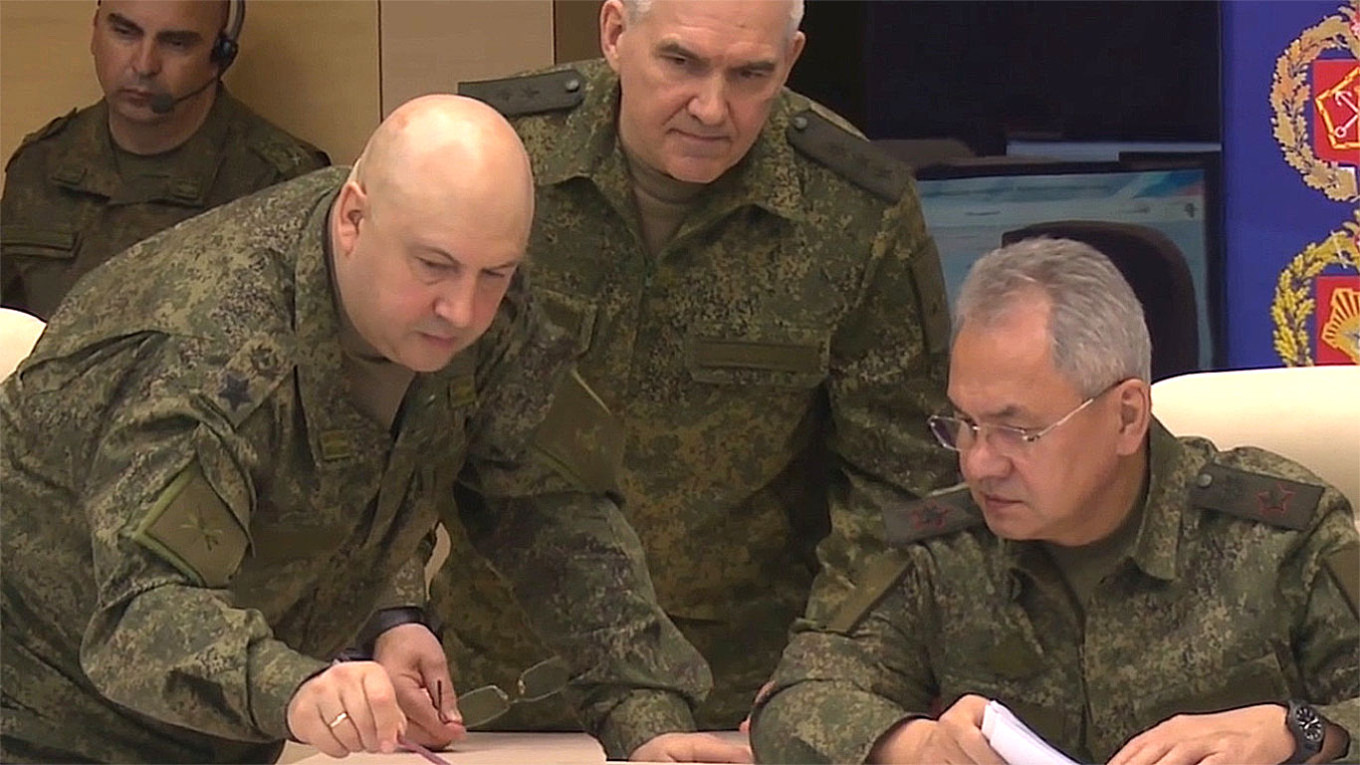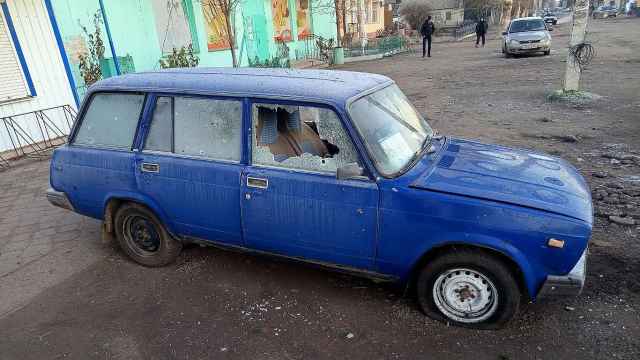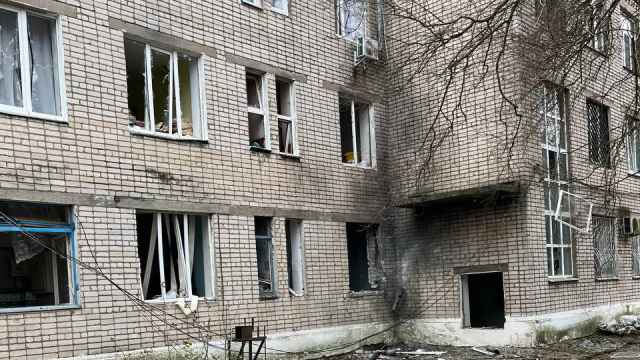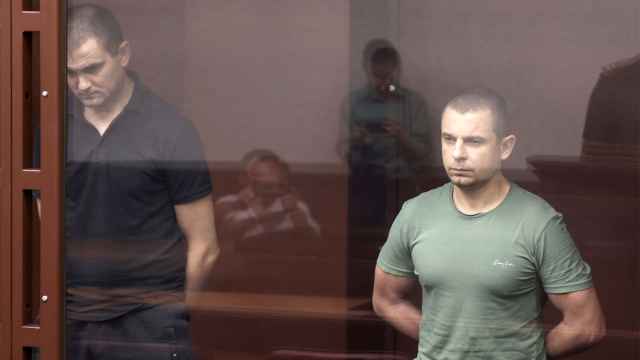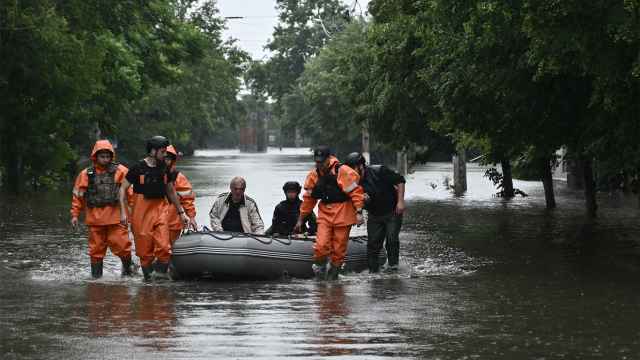Updates with reaction and details.
The Russian Defense Ministry said Wednesday it was withdrawing its forces over the Dnipro River in southern Ukraine’s Kherson region, abandoning the only Ukrainian regional capital to have been captured since Russia launched its invasion of Ukraine earlier this year.
The withdrawal announcement was made by Defense Minister Sergei Shoigu and General Sergei Surovikin, the commander of Russia’s forces in Ukraine.
"The decision to defend on the left bank of the Dnipro is not easy, but at the same time we will save the lives of our military personnel and the combat capability of our forces," Surovikin said in a clip aired on state television.
"Kherson and adjacent settlements cannot be fully supplied or kept functioning. People's lives are constantly in danger," he added.
But shortly after the announcements, Kyiv claimed it saw "no signs" that Russian forces were withdrawing from Kherson.
"We see no signs that Russia is leaving Kherson without a fight," Ukrainian presidential advisor Mykhaylo Podolyak tweeted, suggesting the announcement could be a ploy and calling the order made by Shoigu a "staged TV statement."
The decision to retreat from Kherson and pull back to the left bank of the Dnipro river comes after months of intense fighting in the area, with Ukrainian troops making incremental gains against a large Russian force.
Advancing Ukrainian forces captured the settlement of Kalininskoye and the city of Snihurivka, northeast of Kherson city, early Wednesday, further applying pressure on Russian forces around the regional capital.
In the past months, Russian positions on the right back of the Dnipro have grown increasingly vulnerable, as Ukrainian forces have slowly degraded Russian supply lines, taking out key bridges and forcing Moscow to rely on a number of pontoons and ferry crossings.
The announcement to withdraw from Kherson underscores just how much those supply issues were stymying Russian forces, according to Dmitry Gorenburg, an expert on Russian security at the Virginia-based CNA think tank.
"I think the Russian military has reached a point where supply constraints were increasingly affecting their ability to fight," Gorenburg told The Moscow Times.
Withdrawing its approximately 20,000 troops over the river will enable Russia to consolidate its defensive lines, Surovikin said, using the vast waterway, which is over a kilometer wide, to defend its positions.
"It is preferable to organize defense along the barrier line of the Dnipro River, along its left bank," Surovikin said.
However, analysts have questioned whether Russia will be able to conduct an orderly retreat from the city.
"We will see now how orderly Russia’s withdrawal is," William Alberque, director of the arms control program at the International Institute for Strategic Studies, told The Moscow Times.
"Are they able to move all their troops with their equipment, or is this going to look more like Izyum, where Russia ends up losing a lot of equipment and the soldiers end up panicking and running?" Alberque wondered, referring to Moscow’s chaotic retreat from eastern Ukraine’s Kharkiv region in September.
The decision to relinquish the area comes as a blow to Moscow, with early responses from prominent pro-war figures expressing a begrudging acceptance of the Defense Ministry’s decision.
"We have no other options. They won't let us surrender - they'll just destroy us," wrote pro-Kremlin war blogger Starshy Eddy, while Chechen ruler Ramzan Kadyrov hailed Surovikin’s decision as "difficult but correct."
The Russian withdrawal from Kherson city will come as a huge boost to the Ukrainian military, who now face the challenge of maintaining pressure on Russian forces from across the river in their attempt to drive Russia out of Ukraine once and for all.
"A frontal assault in Kherson is going to be really difficult because the Dnipro is such a wide river and it poses such challenges. So they're going to have to look more towards the north and the center to find ways to unpick the Russian line," Alberque said, though he conceded that the liberation of Kherson city would free up thousands of Ukrainian troops to do just that.
"This is going to free up forces, allowing Ukraine to reinforce areas with reserves and move its high-intensity equipment further north … looking for opportunities to push back the lines up there."
A Message from The Moscow Times:
Dear readers,
We are facing unprecedented challenges. Russia's Prosecutor General's Office has designated The Moscow Times as an "undesirable" organization, criminalizing our work and putting our staff at risk of prosecution. This follows our earlier unjust labeling as a "foreign agent."
These actions are direct attempts to silence independent journalism in Russia. The authorities claim our work "discredits the decisions of the Russian leadership." We see things differently: we strive to provide accurate, unbiased reporting on Russia.
We, the journalists of The Moscow Times, refuse to be silenced. But to continue our work, we need your help.
Your support, no matter how small, makes a world of difference. If you can, please support us monthly starting from just $2. It's quick to set up, and every contribution makes a significant impact.
By supporting The Moscow Times, you're defending open, independent journalism in the face of repression. Thank you for standing with us.
Remind me later.



